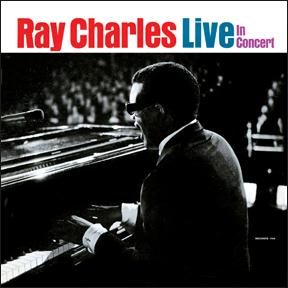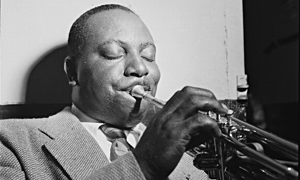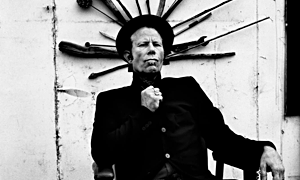Home » Jazz Articles » Book Review » Music Is Rapid Transportation...From The Beatles To Xenakis
Music Is Rapid Transportation...From The Beatles To Xenakis
 Music Is Rapid Transportation...From The Beatles To Xenakis
Music Is Rapid Transportation...From The Beatles To XenakisEditor: Daniel Kernohan
Paperback; 280 pages
ISBN: 9781895166047
Chavari Press
2010
Music Is Rapid Transportation...From The Beatles To Xenakis is a book many jazz fans would probably like to write. It is, basically, a list of favorite albums. Or rather, seven lists, long ones, put together by a network of Canadian-based enthusiasts. If the current gender stereotype for list-makers is accurate, it is a book that male jazz fans in particular would like to write, and, indeed, the seven literary contributors—who, in the words of the book's editor, Daniel Kernohan, are mostly "aging baby boomers"—are all men: Lawrence Joseph, Dan Lander, Donal McGraith, Bill Smith, Alan Stanbridge, Scott Thomson and Vern Weber. So are the photographers: Gordon Bowbrick and Herb Greenslade. And the editor. (Just saying).
Unlike most books built on lists, Music Is Rapid Transportation also contains a weight of discursive content over its 280 large format pages. The lists themselves (each album is given by artist, title and label) take up just 35 pages towards the end, following musico-biographical essays by some of the writers and 126 pages of "Musical Epiphanies," formative and/or sublime listening experiences remembered by all seven. Each of the epiphanies is followed by a paragraph titled "Connections," which suggests further, related listening. Put all this together, writes Kernohan, and you have much more than a list-based book, and instead a collection of "listening autobiographies."
For jazz-focused readers of a certain generation, there are few surprises among the authors' best-loved musicians. Across the book, the most cited musicians are, at a rough count, reed players John Coltrane, Archie Shepp, Albert Ayler, Anthony Braxton, Ornette Coleman, Charlie Parker and Evan Parker; guitarists Derek Bailey and Fred Frith; pianists Thelonious Monk and Cecil Taylor; bassists Charles Mingus and William Parker; composer John Cage; and the groups Art Ensemble Of Chicago, The Beatles and Led Zeppelin.
Around the edges, of course, many less prominent musicians are cited, in the biographical essays, "Connections" or the lists of albums themselves. But even taking these into account, only newbies are likely to come across many musicians or albums which are new to them. And—an observation rather than a criticism—the gestalt is overwhelming North American and European: "world music," unless mediated through musicians such as saxophonist Dudu Pukwana or multi-instrumentalist Don Cherry, seems either to have passed these guys by or has failed to make many deep impacts on them.
The most enjoyable section of the book is "Musical Epiphanies," in each of which the writers describe, over a page or so, an album or performance which was then, and is still now, especially important to them. It is in these pages, and in the biographical essays, that the life-long passions for music which produced Music Is Rapid Transportation become vivid and the book becomes as much fun to read as it must have been fun to write.
Not only is this a book many jazz fans would probably like to write, it is also a book many jazz fans certainly could write. So, if you feel the urge, get tapping or scribbling, for publication or your own enjoyment.
Tags
Book Reviews
Chris May
United States
John Coltrane
archie shepp
Albert Ayler
anthony braxton
Ornette Coleman
Charlie Parker
evan parker
Derek Bailey
Fred Frith
Thelonious Monk
Cecil Taylor
Charles Mingus
William Parker
John Cage
Art Ensemble of Chicago
The Beatles
Led Zeppelin
Dudu Pukwana
Don Cherry
PREVIOUS / NEXT
Support All About Jazz
 All About Jazz has been a pillar of jazz since 1995, championing it as an art form and, more importantly, supporting the musicians who make it. Our enduring commitment has made "AAJ" one of the most culturally important websites of its kind, read by hundreds of thousands of fans, musicians and industry figures every month.
All About Jazz has been a pillar of jazz since 1995, championing it as an art form and, more importantly, supporting the musicians who make it. Our enduring commitment has made "AAJ" one of the most culturally important websites of its kind, read by hundreds of thousands of fans, musicians and industry figures every month.
























